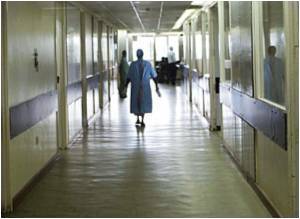
"If you know up front that a patient is at risk for developing an Staphylococcus aureus infection, then you will be better able to manage them clinically, give them preventive measures, and treat them more aggressively if they become ill," said Vance Fowler, M.D., MHS, an associate professor of infectious diseases in the Duke Department of Medicine. MRSA is a severe form of the infection, methicillin-resistant Staphylococcus aureus.
Knowing more about the genetics would give a heightened awareness of individual susceptibility for a condition that injures and kills many people each year, and that is no longer just confined to intensive care units and hospitals, he said.
Knowing about genetic susceptibility could also help to uncover the pathways involved in how host and pathogen interact, Fowler said.
The discovery of two highly promising susceptibility genes happened because just the right mice for this inquiry were available.
"We think this study was a real win," Fowler said. "However, it also goes to show that sometimes it's better to be lucky than good."
Advertisement
"This lucky break allowed us to narrow our search for genes governing susceptibility to S. aureus from 21 chromosomes to just three." Fowler said. "We finally narrowed the search to two genes on chromosome 18 and were able to show that each of these genes appears to influence the immune response to S. aureus."
Advertisement
Next, they examined the genes on these three chromosomes that were expressed differently when the resistant and susceptible mice were infected with SA.
For chromosome 18, they used Quantitative Trait Loci (QTL) mapping to narrow the search even further by identifying the genetic reassortments present in the offspring of sensitive versus resistant mice. They found 10 candidate genes.
Next, they silenced each of these genes, one at a time, to see which had an impact on the immune cells. Of the 10 genes, the investigators found two that influenced the immune system.
Fowler credits postdoctoral researcher Sun Hee Ahn PhD with doing most of the painstaking work involved in the series of experiments. Detailed examinations of chromosomes 8 and 11 remain to be done.
Fowler said that it's possible the genes they uncovered could play a role in other types of bacterial infections. "We don't know if these results are exclusively for gram-positive bacteria like S. aureus, for example, or if they could also be important in susceptibility to gram-negative bacteria, as well."
"Chromosomal substitution strains let us narrow down the region of interest, dramatically, and they are a readily available tool," he said. "The substituted strains haven't been used much in the infectious disease world yet, but I hope that will change with these results."
Genetic information could ultimately help to identify human populations that are susceptible to SA infections, said Fowler, who is a member of the Duke Clinical Research Institute. "We're testing the importance of these candidate mouse genes in DNA from human patients with S. aureus infections that we have collected over the past 10 years."
Source-Eurekalert










